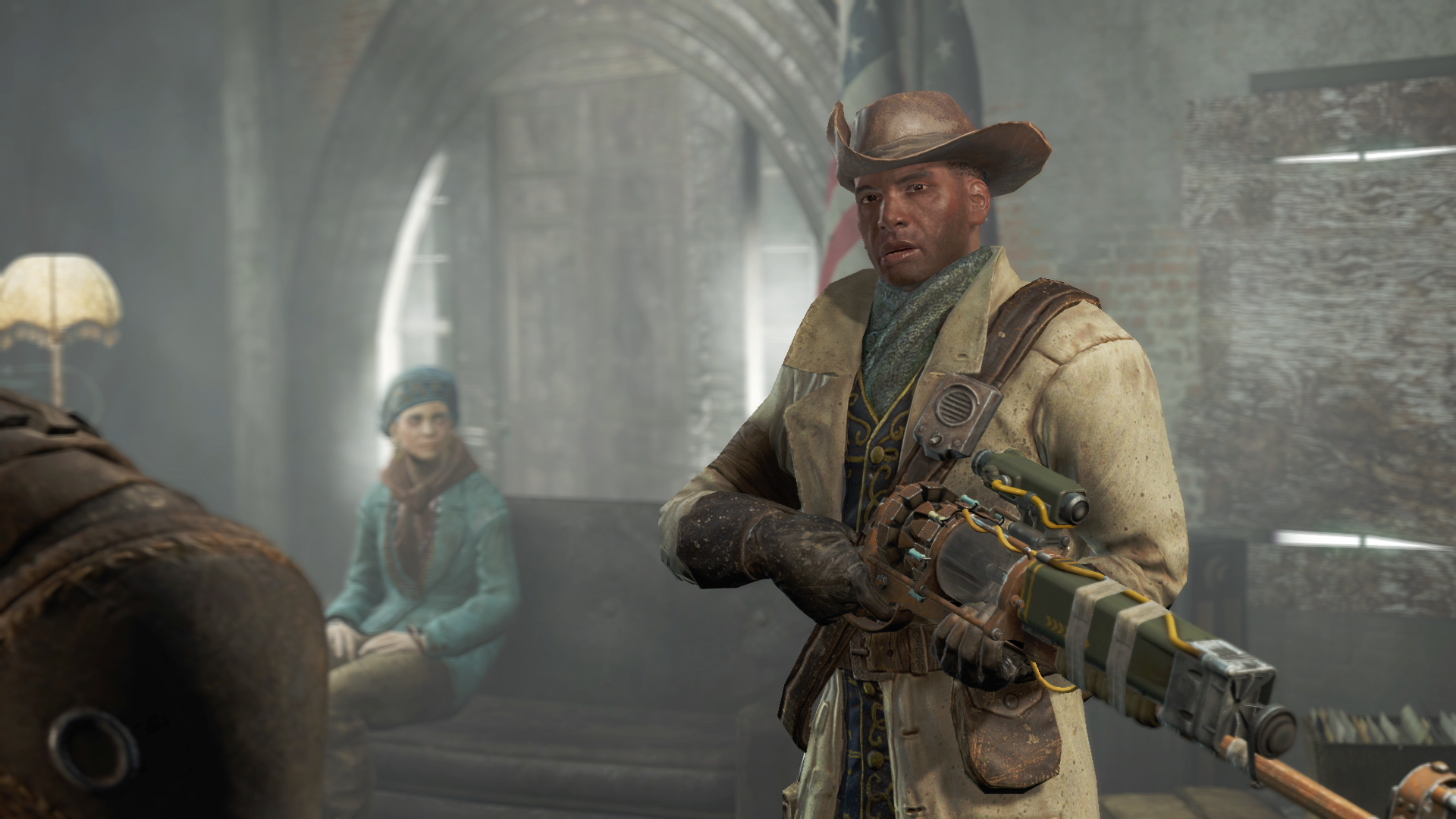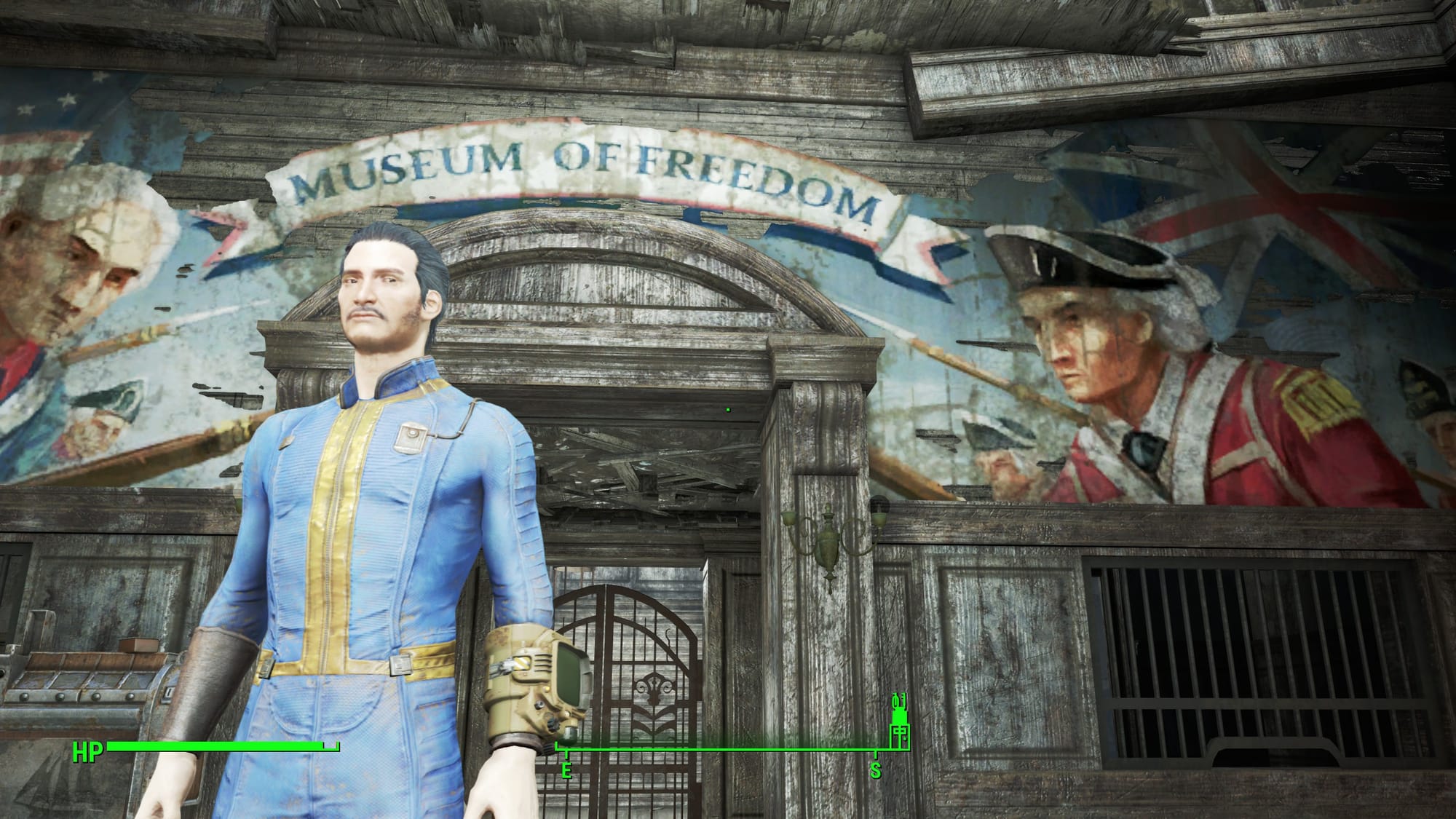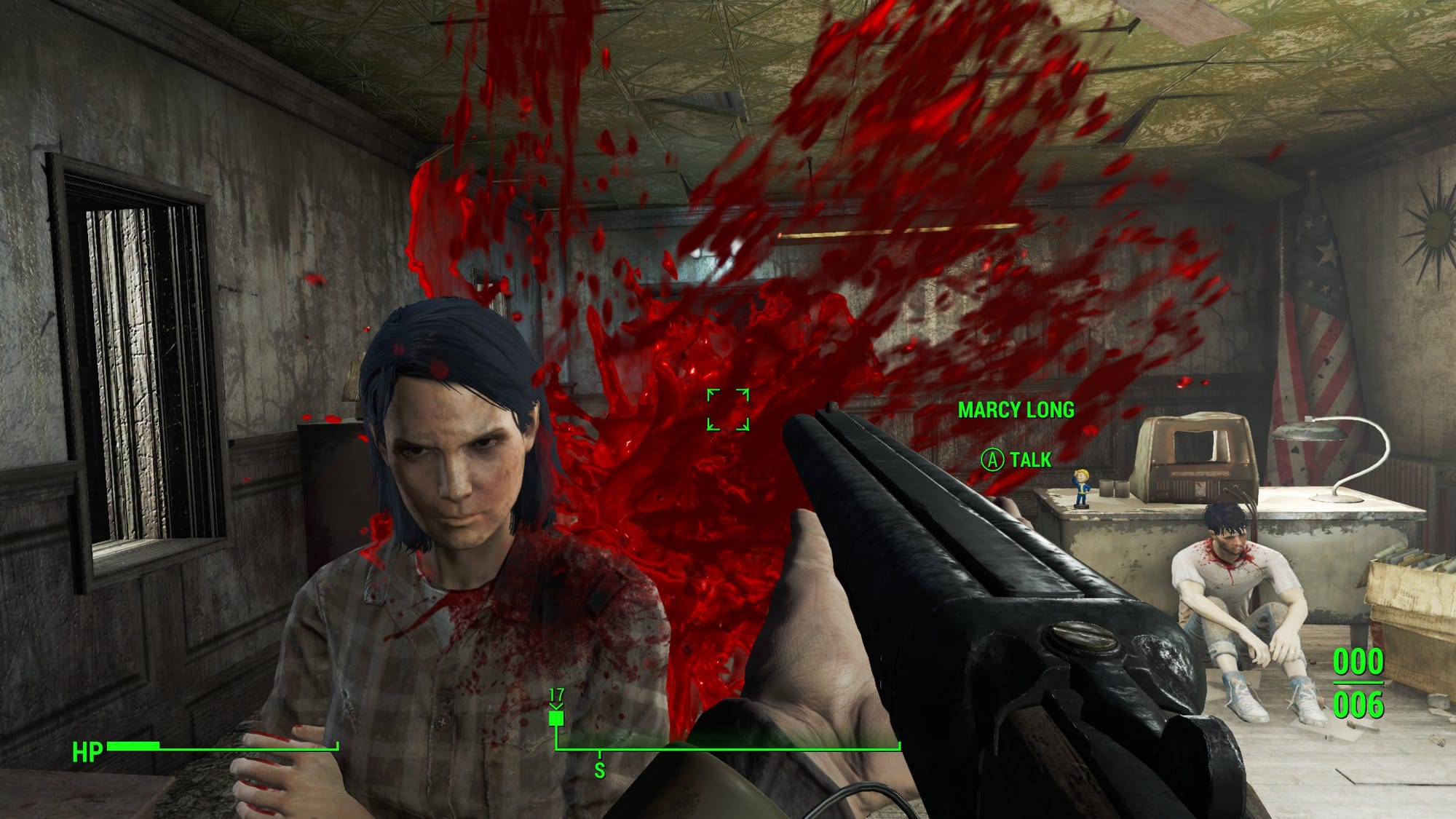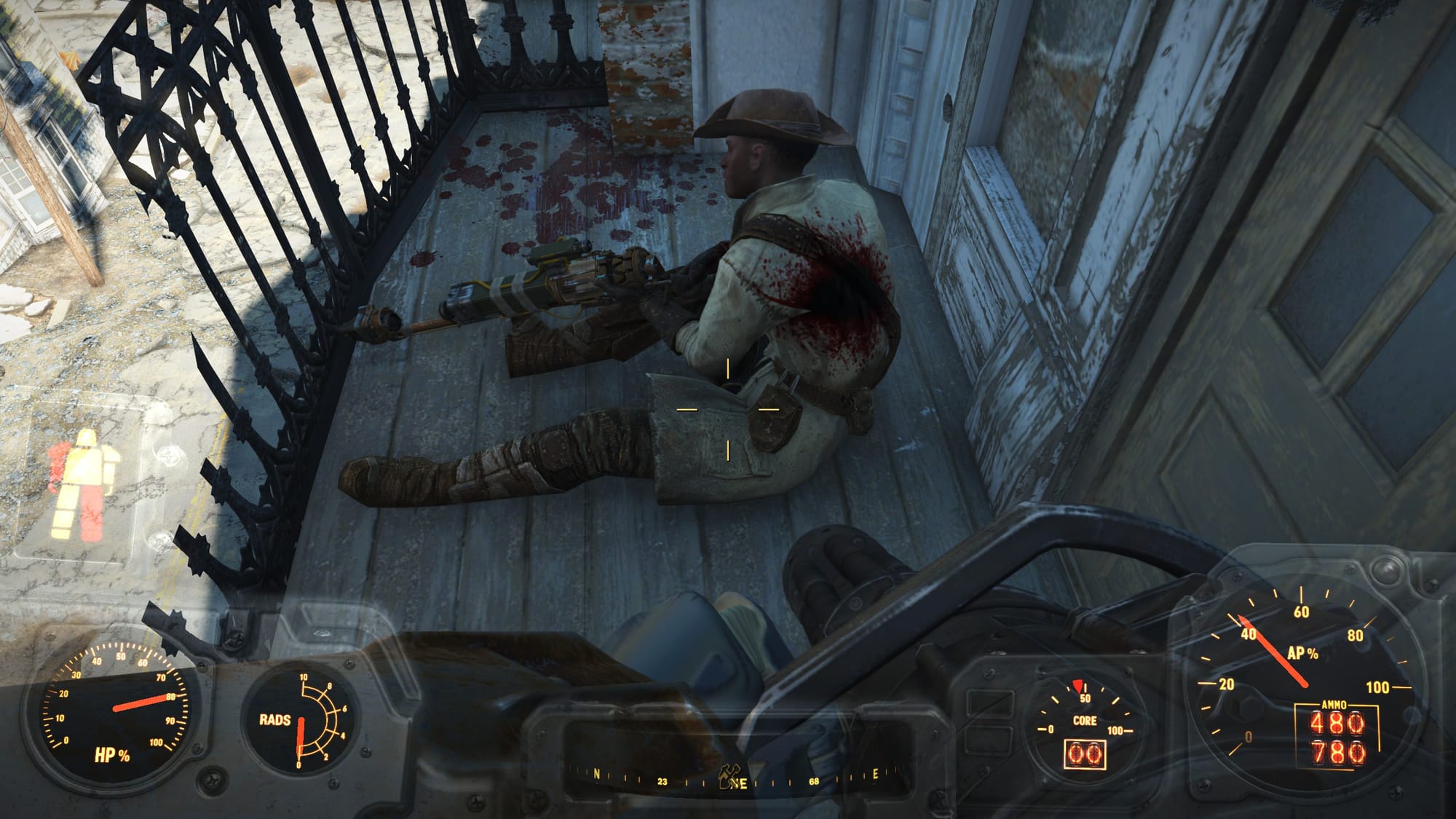Do you have free will in Fallout 4's Commonwealth Wasteland?
Fallout 4 may have particularly weak writing, but it also has a lot of weak world-building and weak quest design to back that up.

One of the major limitations of the Fallout TV series is the lack of gameplay. Well-written scripts with genuine character development and nuanced performances are fine, but is it really Fallout if I can't tell the local merchant he has a stupid face, or have implied anal sex with a robot?
Fallout, through its many iterations, has fundamentally remained a game and setting that emphasises choices. Which quests to take, who to trust, who to betray and how many times, which exploratory hooks to follow into the dusty distance. The basic setting and structure of Fallout naturally puts the player into the choice-making mindset, presenting you with a world where all the normal rules and regulations of society have been upended or turned to irradiated dust. It's a world where all the people who used to tell you what to do are dead, where all the old institutions are powerless, and their societal norms no longer apply.
I'd argue this is one of the more hopeful thematic overtones of the games, that even if the world literally ends at the press of a nuclear button, individuals retain the power to make a difference in the world. They have free will.
That freedom isn't just a nice mechanic to put on the back of a box (if we still had boxes) or bring up in a marketing presentation; you really can't tell an interesting story about this kind of hopeless, crumbling wasteland unless the audience is motivated to care about seeing how it might be better. Or worse. It's a world where big decisions need to be made partly because the alternative is a sad, stagnant universe where nothing good ever happens. And we already have one of those am I right? Social commentary.
So let's put Fallout 4 through a little experiment. Less of a Turing test and more of a touring test, as in how much of the game's narrative is just a tour instead of an adventure.

We're playing through just the first couple of hours of the game, attempting to exercise our player agency as much as possible. While you can go to other places first, technically, we're making a beeline for the surviving settlers at inaccurately named Museum of Freedom. This is where the game desperately wants you to go, begs and screams for you to interact with before going anywhere else. It offers no real alternatives when you exit the vault, the map funnels you in that direction unless you actively fight to go another way, and concluding events there immediately points you toward the Settlement mechanics, Bethesda's proudest achievement this time around. A second note is that there are zero choices to be made before emerging from the vault. 200 years of nothing. You can't even choose which doors to take inside the vault. So we're skipping over that.
First Loop: I'm That Jerk
For round one, I pick the rude response in every dialogue choice. Fallout 4's dialogue system is infamously terrible compared to the other games, offering a selection of four vague options that frequently boil down to ask a question, agree in the most boring way possible, say something sarcastic while still agreeing, or be a complete asshole. It's impossible to tell what the main character is actually going to say when you pick these, but it's at least obvious when you've decided to be antisocial. So I'm a real piece of shit to Codsworth the robot butler and tell him my family are dead. I'm not allowed to tell him I don't actually care about my stolen son or that I think it makes more sense for his name to be Cogsworth, but I can refuse to do the fly shooting tutorial disguised as a quest.
He continues to be exactly as nice to me as he would be to a polite person, but we'll give him the benefit of the doubt as a robot literally programmed to be my servant.
At the museum I tell Preston Garvey and the rest of the cowards to sod off, I'm not going to help them with their stupid plan to shoot a lot of raiders. Then I'm forced to relent because there are no other ways to complete the quest, and you can't actually fail it even if you try (more on this later). When I kill all the bad guys and the big monster they thank me for the help and I tell them to suck eggs, which has no effect. They head to Sanctuary to make the first settlement, and the game continues as if I wasn't even there.

Second Loop: A Car Accident
This time around I decided to try and complete the opening as quickly as possible, ducking past Codsworth, avoiding the petrol station, and dashing to Concord. My leg brushed against a parked car and I dropped dead. I only include this loop because it was very funny and perhaps the only time I felt a positive emotion while playing the game.
Third Loop: Murder
Can you murder Preston Garvey and spare yourself the indignity of hearing his doughy voice put you to sleep later? No. First I tried to snipe him from outside while he fended off raiders, only to discover he was rendered immortal by a magical balcony. This upset me so much that I went to the nearest computer terminal so the game would immediately crash. I attempted a shotgun blast to his emotionless face upon walking into the room at the top of the museum and he didn't even react. Watching an NPC calmly ask you to help out with their problems while the player-inflicted gunshot wound is still fresh across their chest is a deeply demoralising gaming experience.
They sent me downstairs to hack a computer, but I got stuck in the floorboards again and had to restart the game. Again.
Fourth Loop: Ultra Turbo Murder
Let's just kill everyone, you might think, driven mad by the plastic box the game has put you inside to experience Fallout: The Interactive Theme Park Ride. Bad news on that front, all of the NPCs at the Museum of Freedom are marked as essential, which is something Bethesda likes to do when they have a very specific set of events to baby-walk you through and doesn't want silly things like playing the game to get in the way.
Attempting to obliterate the bodies of Overall Jesus, Grandma Drugs and the other NPCs I've forgotten is a fools errand. They're immune to bullets, fire, explosions, blunt force trauma and me repeatedly telling them to fuck off by yelling at my screen.

Attack any of these people after the museum is safe and they're still immortal, but now they can be hostile, leading to a hilariously stupid situation where the game will not let you kill these people who are quite happy to shoot you to death, and it will keep telling you to follow them to Sanctuary for a quest. Sir, I don't think these aggrieved gods want me to follow them home.
Good news, though, as once you knock out a given NPC and let them sit on the floor for a minute or two, soaking in their own blood, they simply forget. Forget you shot them, forget you tried to kill them. They just pop back onto Fallout 4's pre-approved observation car track as if nothing happened. Shoot them, run away, run back, shoot them some more, wait for them to fall over, get thanked for helping Sanctuary, shoot them, take a quest to help more NPCs, shoot them again, get invited over for a nice dinner.
This is Not Your Story
Bethesda, ostensibly the voice of modern Fallout, has always had a strange relationship with the concepts of choice and freedom in video games. Their titles have a lot of decisions, paths, options; but there's always been an undercurrent of disrespect to those options, always a right and a wrong way to do things. Fallout 3 was rightly needled for its ending, in which the main character is obligated by narrative pressure to kill themselves, even if there are perfectly logical alternatives available. Over time, this seems to have become their default way to write an interactive narrative.
Dealing with this in Fallout 4, a long corridor filled with signs that all point further down the corridor, caused me significant mental distress. I am a despondent shell of my former self, trapped in Bethesda's cardboard cutout version of reality.
Variables are not choices! You can't just put me in a room with differently coloured balls and get me to clap because there are an infinite number of possible ball combinations. I don't want to play with your balls all day, Bethesda. This isn't how you tell a story, or build a world, this is how you distract a child. Fallout 4 (and Starfield, and a lot of Bethesda's past work) is constructed as if I should be endlessly entertained by the fact that computers even exist, with their wacky ones and zeroes. Imagine if there were two doors, right, and behind one of them there was a box, and behind the other one there was also a box but it was red. Imagine it. Now imagine a wasteland full of doors.

In a sense, all video game choices are an illusion. No choice exists that wasn't designed in by the developers. But the choices in Fallout 4 feel like an inconvenience, something the game is putting up with long enough for you to shut up and sit down. Making a choice in Fallout 4 feels like shouting suggestions at actors in a play while they try to ignore you. It views player agency as troublesome, which is strange for a video game and doubly strange for a game with such weak writing.
Not only are you mostly stripped of free will in Fallout 4, the game seems to be actively against the idea. The result is a Fallout world that feels distant, unfamiliar and ultimately pointless.
I guess part of the reason I wanted to dig into the design and writing of Fallout 4 is to try and understand why Bethesda makes games the way they do these days. But I've come out the other end even more confused. Modern Bethesda titles don't seem to want anything from the player at all, being content to simply throw a pile of toys at the players' feet and walk off, like my dad Liam Neeson. Settlements. Power suits. Deathclaws. Hats. Robots. Modular spaceships.
Fallout 1 gave us the yawning abyss of a destroyed world, brimming with possibility. Fallout New Vegas gave us a complex mass of factions and tricky decisions. The Fallout TV show gave us a set of morally complicated people making endlessly interesting choices. The very idea of a Fallout 5 gives me crippling ennui.
